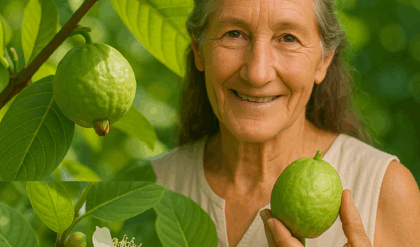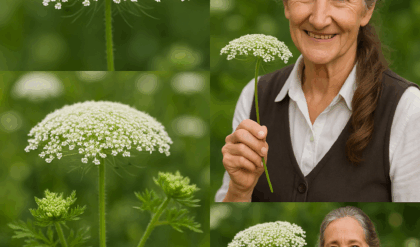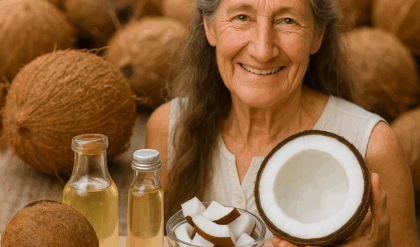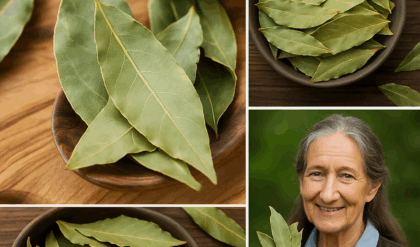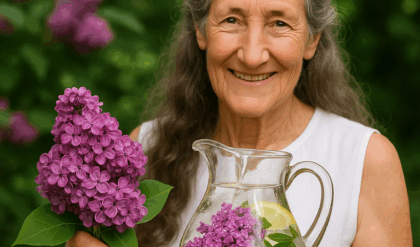Often seen gracing woodland edges with clusters of white blooms or deep purple berries, elderberry is more than a beautiful wild plant—it’s a powerhouse of natural healing. But not all elderberries are created equal. When properly harvested and prepared, the flowers and cooked berries of select species like Sambucus nigra, Sambucus canadensis, and Sambucus cerulea offer an exceptional range of health benefits.
Whether you’re looking to boost your immune system, fight off seasonal ailments, or nourish your skin and digestion, edible elderberries and elderflowers deliver plant-based support that’s stood the test of time.
Here’s a detailed look at the 15 most powerful benefits of edible elderberry parts—and exactly how to use them at home.
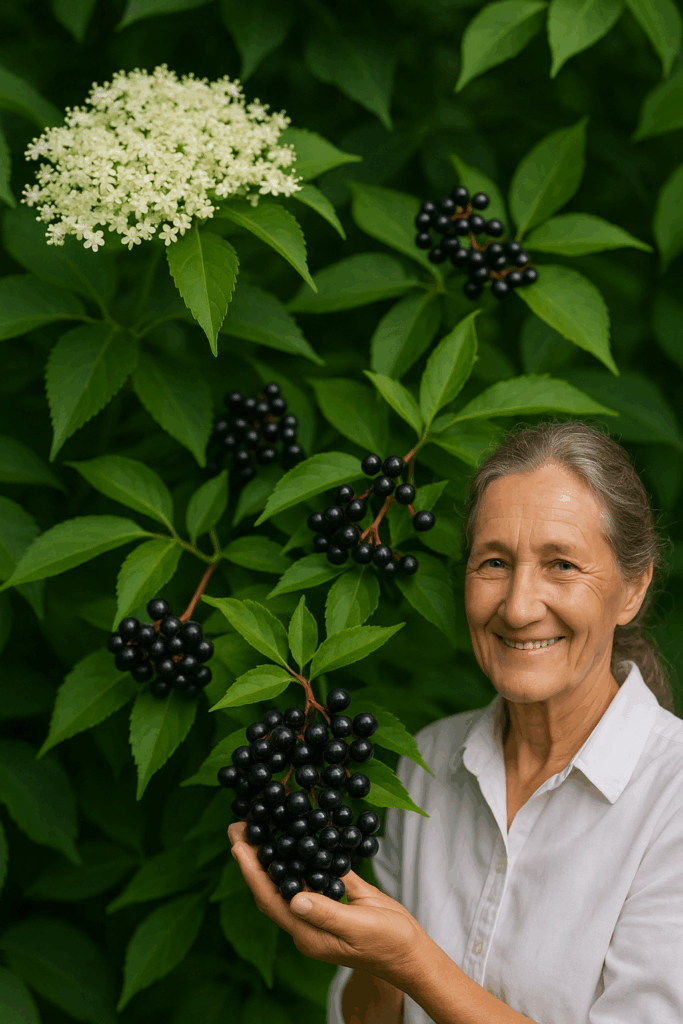
🌿 1. Boosts Immune Function Naturally
Elderberries are rich in flavonoids and vitamin C, helping activate the body’s immune responses and prevent frequent infections.
👉 Use: Elderberry syrup daily during cold seasons.
🌬 2. Relieves Cough and Congestion
Elderflowers act as a gentle expectorant, soothing inflamed airways and reducing mucus buildup.
👉 Use: Elderflower tea to calm coughs and ease breathing.
🤧 3. Fights Cold and Flu Symptoms
Studies show elderberry can shorten the duration of colds and flu by supporting viral resistance.
👉 Use: Elderberry tincture or homemade elderberry gummies during illness.
🔥 4. Reduces Inflammation
Both berries and flowers help lower internal inflammation thanks to their anti-inflammatory polyphenols.
👉 Use: Drink elderflower tea regularly for systemic relief.
🛡 5. Rich in Antioxidants
Elderberries are loaded with anthocyanins, which help protect cells from oxidative stress and aging.
👉 Use: Add elderberry compote or extract to your breakfast bowl.
🍽 6. Supports Digestion
Elderflower is a mild digestive aid that helps reduce gas and bloating while calming an upset stomach.
👉 Use: A light elderflower tea after meals supports gut balance.
🌡 7. Naturally Reduces Fever
Traditionally used as a diaphoretic to induce sweating and lower fevers.
👉 Use: Elderflower infusion during early stages of fever.
🧴 8. Promotes Clear, Healthy Skin
Thanks to its antibacterial and anti-inflammatory properties, elderflower soothes skin irritations and helps speed healing.
👉 Use: Cooled elderflower tea as a gentle facial rinse or compress.
💧 9. Supports Urinary Tract Health
The diuretic properties of elderflower help flush out bacteria and support bladder function.
👉 Use: Drink elderflower tea for gentle urinary support.
🌼 10. May Reduce Allergy Symptoms
Elderflower is known to help ease mild seasonal allergies by calming histamine responses.
👉 Use: Sip elderflower tea daily during allergy season.
❤️ 11. Supports Heart and Circulatory Health
The anthocyanins in elderberry help strengthen blood vessels, reduce LDL oxidation, and promote healthy blood pressure.
👉 Use: Cooked elderberry jam or syrup as a heart-healthy treat.
🙂 12. Enhances Mood and Cognitive Function
Antioxidants in elderberries may reduce oxidative stress in the brain, promoting mental clarity and emotional balance.
👉 Use: Take elderberry capsules or blend into smoothies for brain support.
🦴 13. Strengthens Bones with Trace Minerals
Elderberries contain potassium, calcium, and iron, all beneficial for bone metabolism and strength.
👉 Use: Elderberry smoothie blended with greens and yogurt.
🚿 14. Gently Detoxifies the Body
Elderflowers support natural detox through mild diuretic and lymphatic actions, helping the liver and kidneys cleanse the blood.
👉 Use: Elderflower water or light tea in the morning.
👁 15. Supports Vision Health
With vitamin A and antioxidant pigments, elderberries can help protect eyes from oxidative damage and strain.
👉 Use: Elderberry-infused tea or low-sugar syrups for long-term eye support.
🛠️ How to Safely Use Elderberry and Elderflower at Home
🍯 Elderberry Syrup
Simmer cooked elderberries with cinnamon, cloves, and honey. Store in a jar and take 1 tsp daily as an immune booster.
🍵 Elderflower Tea
Steep 1–2 teaspoons of dried elderflowers in hot water for 10 minutes. Drink warm for immune, allergy, or digestion support.
🌿 Elderberry Tincture
Cover dried berries with high-proof alcohol in a sealed jar for 4 weeks. Strain and use a dropper (20–30 drops/day as needed).
🧊 Elderflower Face Rinse
Steep fresh elderflowers and cool the tea. Use on the skin with a cotton pad to reduce irritation and refresh the complexion.
🥣 Elderberry Jam or Compote
Cook berries with minimal sugar and lemon juice. Spread on toast, stir into oatmeal, or pair with yogurt for a nourishing snack.

⚠️ Important Safety Note
Only use edible species of elderberry:
✅ Safe when cooked:
- Sambucus nigra
- Sambucus canadensis
- Sambucus cerulea
❌ Avoid (toxic species):
- Sambucus racemosa (Red elderberry)
- Sambucus ebulus (Dwarf elder)
These contain toxic compounds that may not break down even with heat.
Also:
- Never consume raw berries, unripe fruit, stems, or leaves.
- Always cook elderberries before eating.
- Pregnant or breastfeeding? Consult your doctor first.
💬 Final Thoughts
Elderberry flowers and berries are a timeless remedy—blending beauty, tradition, and science into a healing ally you can grow or forage. From immune protection to mood support, from glowing skin to smoother digestion, these wild gifts are too powerful to ignore.
Whether you’re brewing a pot of elderflower tea, crafting your own syrup, or simply adding a spoonful of elderberry jam to your breakfast—you’re inviting nature’s wisdom into your wellness journey.

